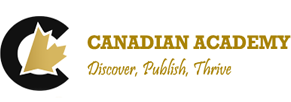The initiative involves the creation of a web-based Open Education Resources (OER) system aimed at non-commercial educational use. The project focuses on using open-source tools, frameworks, and technologies, supported by a comparative analysis of leading Learning Management Systems (LMS). The objective is to optimize user experiences across diverse user profiles. The structure involves a research team and a development team working together to establish a robust, user-centric OER system.
With the rise in student enrollments, the demand for accessible educational materials has surged, necessitating the development of OER systems. Information and Communication Technologies (ICT) have reshaped the education landscape, prompting the need for adaptable resources. UNESCO has been a key advocate for OER, promoting policies and capacity building to bridge the digital knowledge gap. OER includes a range of resources like learning content, software tools, and open licenses, which are crucial for modern education.
Despite the availability of OERs, their integration into higher education remains limited, with conventional textbooks still dominating. The underutilization of course management systems for OER distribution highlights the need for more accessible resources. This gap hinders educators’ ability to adapt to diverse learning needs, underscoring the urgency to embrace OER as a core component of modern education.
The project aims to develop an OER system enabling users to upload materials, manage users, and engage in discussions. The system will incorporate functionalities identified through research on existing OER systems and LMS tools, including semantic search engines to enhance search capabilities. The development will utilize open-source solutions like Moodle, Blackboard, Canvas, Sakai, and Latitude for robust LMS features.
For the OER system’s development, PHP 8 and Laravel 8 were selected for their speed, cost efficiency, database flexibility, and large talent pool. Laravel 8 offers scalability, a lightweight template engine, modern PHP principles, and MVC architecture support. Flarum was chosen for forums due to its extensive web server support, PHP compatibility, and SSH access. The chosen tools ensure a robust development environment, balancing performance and user experience.
Key functionalities include advanced and semantic search engines, material browsing, user registration, and content management. Additional features like bookmarking, forums, content modification, and peer review enhance the platform’s usability. The goal is to create a comprehensive system catering to educators’ and learners’ needs, facilitating resource sharing and collaboration.
The system’s design emphasizes ergonomics, performance, and ease of maintenance. A user-friendly interface tailored to educators ensures accessibility, while high performance and efficient maintenance guarantee a reliable platform. These considerations are vital for meeting the expectations of the primary users—educators and learners.
Developing an OER system for educational institutions requires addressing both functional and non-functional requirements comprehensively. Advanced search capabilities, user-friendly content creation tools, and an interactive platform for collaboration are crucial. Ensuring high performance, ease of maintenance, and a user-centric design are equally important. A holistic approach to development will result in a robust, effective OER system that supports educational institutions and fosters an accessible learning environment.
The development process for an OER system is multifaceted, requiring a balance between functionality and usability. The inclusion of advanced search engines, user review functionalities, and collaborative tools enhances the platform’s effectiveness. Non-functional requirements like ergonomics and performance are critical for a positive user experience. By addressing these aspects, the OER system can meet the evolving needs of educational institutions, providing a valuable resource for educators and learners.
This comprehensive approach ensures that the OER system will be a significant step forward in making education more accessible, interactive, and adaptable to the diverse needs of the global learning community.
Source:
 Canadian Academy Discover, Publish, Thrive
Canadian Academy Discover, Publish, Thrive